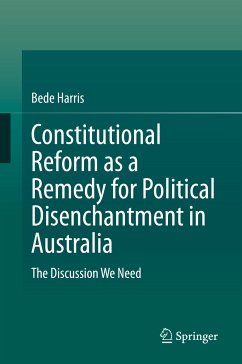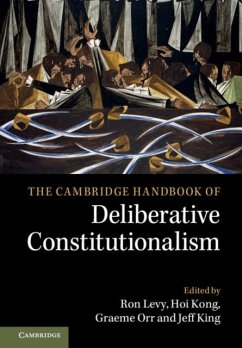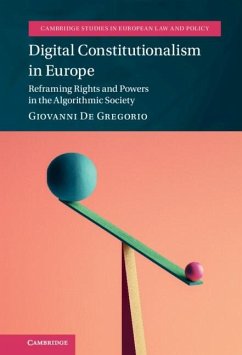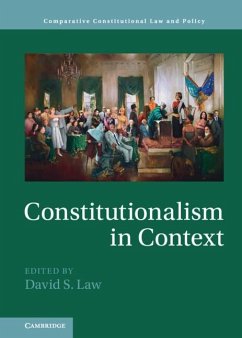
Political Constitutionalism (eBook, PDF)
A Republican Defence of the Constitutionality of Democracy
Versandkostenfrei!
Sofort per Download lieferbar
32,95 €
inkl. MwSt.
Weitere Ausgaben:

PAYBACK Punkte
16 °P sammeln!
Judicial review by constitutional courts is often presented as a necessary supplement to democracy. This book questions its effectiveness and legitimacy. Drawing on the republican tradition, Richard Bellamy argues that the democratic mechanisms of open elections between competing parties and decision-making by majority rule offer superior and sufficient methods for upholding rights and the rule of law. The absence of popular accountability renders judicial review a form of arbitrary rule which lacks the incentive structure democracy provides to ensure rulers treat the ruled with equal concern ...
Judicial review by constitutional courts is often presented as a necessary supplement to democracy. This book questions its effectiveness and legitimacy. Drawing on the republican tradition, Richard Bellamy argues that the democratic mechanisms of open elections between competing parties and decision-making by majority rule offer superior and sufficient methods for upholding rights and the rule of law. The absence of popular accountability renders judicial review a form of arbitrary rule which lacks the incentive structure democracy provides to ensure rulers treat the ruled with equal concern and respect. Rights based judicial review undermines the constitutionality of democracy. Its counter-majoritarian bias promotes privileged against unprivileged minorities, while its legalism and focus on individual cases distort public debate. Rather than constraining democracy with written constitutions and greater judicial oversight, attention should be paid to improving democratic processes through such measures as reformed electoral systems and enhanced parliamentary scrutiny.
Dieser Download kann aus rechtlichen Gründen nur mit Rechnungsadresse in A, B, BG, CY, CZ, D, DK, EW, E, FIN, F, GR, HR, H, IRL, I, LT, L, LR, M, NL, PL, P, R, S, SLO, SK ausgeliefert werden.













